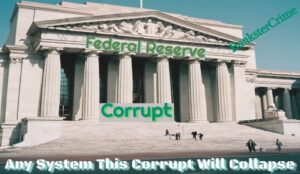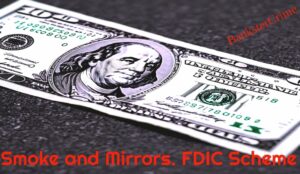We are tempted by our “own evil desire” first (James 1:14). That’s not to say every unbeliever is blatantly and spitefully turning from what is known to be true. But the unbeliever’s desire for self-satisfaction makes Satan’s deception all the more potent.
Today, stock markets and other markets such as bonds and currencies can best be described as “automated automation.” Here’s what I mean.
There are two stages in stock investing. The first is coming up with a preferred allocation among stocks, cash, bonds, etc. This stage also includes deciding how much to put in index products or exchange-traded funds (ETFs, which are a kind of mini-index) and how much active management to use.
The second stage involves the actual buy and sells decisions — when to get out, when to get in and when to go to the sidelines with safe-haven assets such as Treasury notes or gold.
What investors may not realize is the extent to which both of these decisions are now left entirely to computers. I’m not talking about automated trade matching where I’m a buyer and you’re a seller and a computer matches our orders and executes the trade. That kind of trading has been around since the 1990s.
I’m talking about computers making the portfolio allocation and buy/sell decisions in the first place, based on algorithms, with no human involvement at all. This is now the norm.
Eighty percent of stock trading is now automated in the form of either index funds (60%) or quantitative models (20%). This means that “active investing,” where you pick the allocation and the timing, is down to 20% of the market. Although even active investors receive automated execution.
In all, the amount of human “market-making” in the traditional sense is down to about 5% of total trading. This trend is the result of two intellectual fallacies.
The first is the idea that “You can’t beat the market.” This drives investors to index funds that match the market. The truth is you can beat the market with good models, but it’s not easy.
The second fallacy is that the future will resemble the past over a long horizon, so “traditional” allocations of, say, 60% stocks, 30% bonds and 10% cash (with fewer stocks as you get older) will serve you well.
But Wall Street doesn’t tell you that a 50% or greater stock market crash — as happened in 1929, 2000 and 2008 — just before your retirement date will wipe you out.
But this is an even greater threat that’s rarely considered…
In a bull market, this type of passive investing amplifies the upside as indexers pile into hot stocks like, for example, Google and Apple have been. But a small sell-off can turn into a stampede as passive investors head for the exits all at once without regard to the fundamentals of a particular stock.
Index funds would stampede out of stocks. Passive investors would look for active investors to “step up” and buy. The problem is there wouldn’t be any active investors left, or at least not enough to make a difference. There would be no active investors left to risk capital by trying to catch a falling knife.
Stocks will go straight down with no bid. The market crash will be like a runaway train with no brakes.
It comes back to complexity, and the market is an example of a complex system.
One formal property of complex systems is that the size of the worst event that can happen is an exponential function of the system scale. This means that when a complex system’s scale is doubled, the systemic risk does not double; it may increase by a factor of 10 or more.
This kind of sudden, unexpected crash that seems to emerge from nowhere is entirely consistent with the predictions of complexity theory. The increasing market scale correlates with exponentially larger market collapses.
Welcome to the world of automated investing. It will end in disaster. Source
God has sent the Savior (John 3:16), He fills the world with signs of Himself (Romans 1:20), He makes Himself available to those who seek Him (Deuteronomy 4:29), and He secures anyone who comes to Him (John 6:37). When men reject what is “clearly seen” of God (Romans 1:20), it leads to a downward spiral of “foolish hearts” made dark (verse 21), idolatry (verse 22), and sexual impurity (verse 24). Finally, mankind “exchanged the truth of God for a lie” (verse 25). In other words, the spiritual deception of mankind is the direct result of rejecting truth once held. The unbeliever has made an exchange—the truth for a lie—and the devil is happy to facilitate the swap by presenting the sinner with a wide array of lies from which to choose.
Anyone who resists God risks falling into spiritual deception (2 Thessalonians 2:8-10). Nature abhors a vacuum, and the void created by the eviction of truth will soon be filled by something less than true. Give up the truth, and you’ll believe just about anything.





